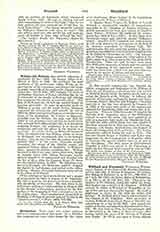

William the Clerk (OF NORMANDY), French poet of the thirteenth century. Nothing is known of his life except that he was a clerk of Normandy. Among the works, which may be assigned to him with some certainty, are: “Bestiaire divin” (ed. Hippeau, Caen, 1853), a moral and theological treatise on natural history dealing with man and animals, probably composed about 1210, as the author, in his description of the dove, deplores the sad condition of the Church in England in 1208; “Besant de Dieu”, an allegorical poem, composed in 1226 (ed. Martin, Halle, 1869); “Joies Nostre Dame” (ed. Reinsch in “Zeitschrift fur Romanische Philologie”, III, 1879, p. 2); “Treis moz de l’evesque de Lincoln” (ibid.); “Vie de Tobie” (ed. Reinsch in Herrig, “Archiv”, 1881). A legend of “St. Magdalen” is also credited to him. The “Roman de Tergus”, which is connected with the romances of the Round Table, the “Fabliaux” (short stories), “Prestre et Alison”, “Male Honte”, and “La fine A la bourgeoise” are no longer regarded as his. Although he probably lived for a time in England, as many Norman clerks did, he did not use the Anglo-Norman dialect, but the French.
LOUIS N. DELAMARRE

